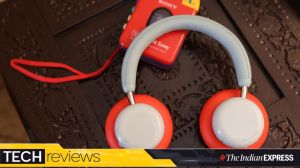The Microsoft ruling
A US judge issued a ruling on Thursday prohibiting global software giant Microsoft from requiring computer makers to install Microsoft's In...

A US judge issued a ruling on Thursday prohibiting global software giant Microsoft from requiring computer makers to install Microsoft8217;s Internet browser along with the company8217;s Windows 95 operating system. US District Court Judge Thomas Jackson, in a preliminary ruling, said his order would remain in effect until the issues surrounding an anti-trust case brought by the US Department of Justice against Microsoft were further reviewed.
He said that review, focusing on quot;issues of fact and law,quot; would be conducted by a special quot;master,quot; Attorney Lawrence Lessing of Illinois.
quot;Based on the present record8230;the Government appears to have a substantial likelihood of success on the meritsquot; of its case against Microsoft, Jackson said in his decision in the landmark case.
Microsoft chairman Bill Gates meanwhile refused on Friday to discuss the US court ruling. Gates, who gave a speech to students at Qinghua University in Beijing, refused to make any comment on the decision, and just said that his company8217;s quot;Explorer 4.0quot; internet browser was quot;doing wellquot;.
Microsoft had warned it would also compel computer makers licensed to equip PCs with the Windows 95 operating software to install Microsoft8217;s latest version of quot;Explorerquot; Internet browser beginning in February. Jackson said this raised the possibility that Microsoft could acquire another monopoly in the computer software sector, and ruled this required further study.
quot;The probability that Microsoft will not only continue to reinforce its operating system monopoly by its licensing practices, but might also acquire yet another monopoly in the Internet browser market, is simply too great to tolerate indefinitely until the issue is finally resolved,quot; the judge wrote.
quot;Those practices should be abated until it is conclusively established that they are benign,quot; he ruled.
In another section of the decision, he said quot;the Government has shown that there exists sufficient independent consumer demand for operating systems and Internet access software so that it is efficient for a firm to provide these products separatelyquot;.
The Justice Department has accused Microsoft of violating laws designed to halt monopolistic practices by requiring computer manufacturers that install its Windows 95 software 8212; the brains of nine out of 10 personal computers 8212; to also install Microsoft8217;s Explorer Internet browser.
Jackson ruled against the Government in its request that Microsoft be found in contempt of a consent decree, or final judgment, that the company reached with the Justice Department in 1995.
That accord was designed to end a dispute sparked by Justice Department accusations that Microsoft had been engaging in anti-competitive practices.
Jackson found that Microsoft had quot;provided a reasonable explanation for its understanding that the consent decree did not preclude Microsoft8217;s insistence that the OEMs original equipment manufacturers accept IE Internet Explorer as part of Windows 95quot;. But he added that quot;it does not necessarily follow that Microsoft8217;s licensing practices are, in fact, in compliance with the final judgmentquot;.
- 01
- 02
- 03
- 04
- 05































